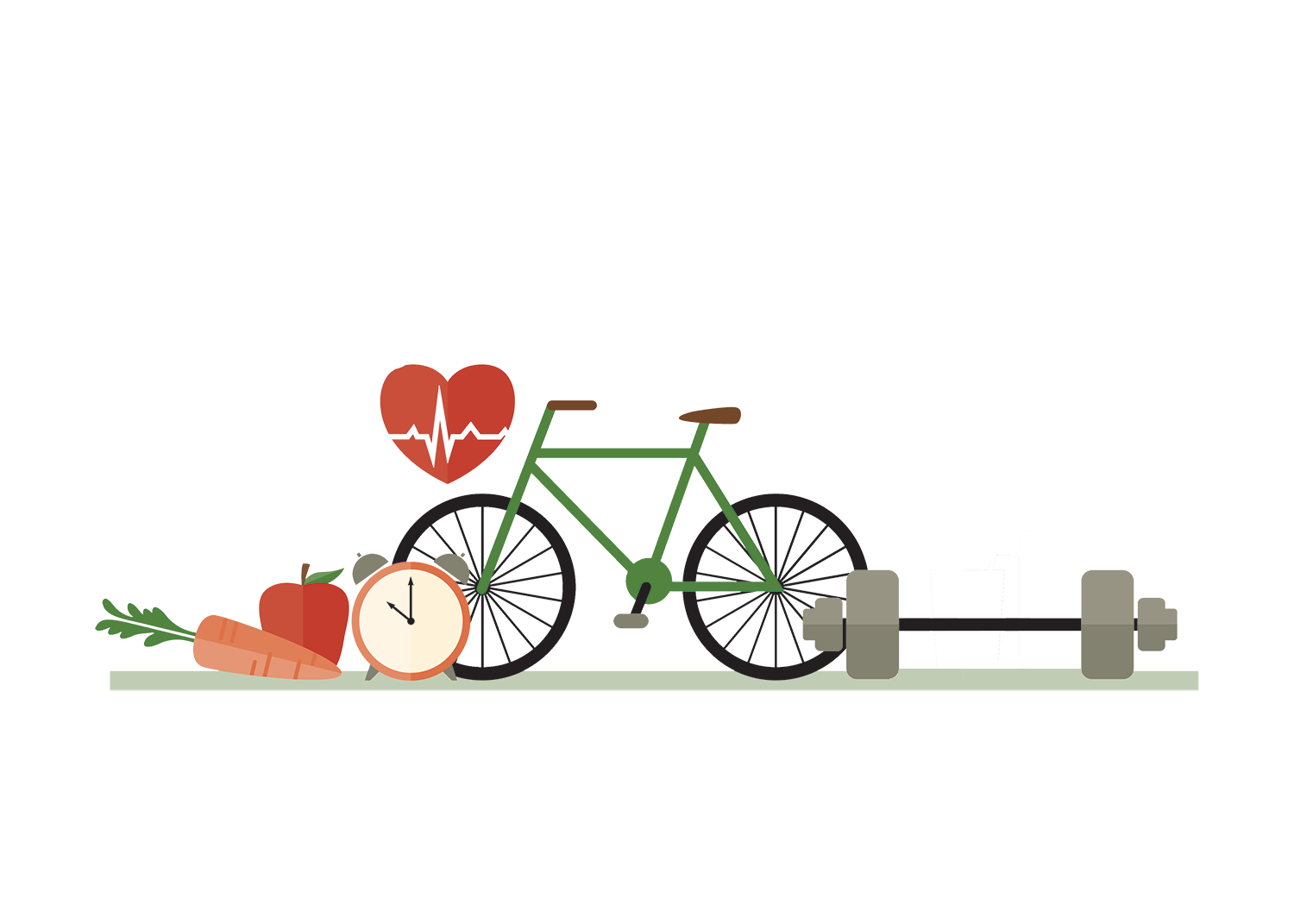Making Every Contact Count
How NICE resources can support local priorities

The MECC approach
Making Every Contact Count (MECC) is an evidence-based approach to improving people’s health and wellbeing by helping them change their behaviour. The NHS Long Term Plan reminds us that every 24 hours the NHS comes into contact with more than a million people at moments that bring home the personal impact of ill health.
The MECC approach enables health and care workers to engage people in conversations about improving their health by addressing risk factors such as alcohol, diet, physical activity, smoking and mental wellbeing.
Public Health England and Health Education have worked with organisations in health and social care to produce a range of practical resources to support this approach. They align with our guidelines on behaviour change.
This approach is a requirement of the NHS standard contract. It also supports the emphasis on prevention that's part of the Long Term Plan. This includes:
- increasing the support available to help people to manage and improve their own health and wellbeing
- ensuring that behavioural interventions are available for patients, service users and staff.
MECC uses brief and very brief interventions, delivered whenever the opportunity arises in routine appointments and contacts. Very brief interventions take from 30 seconds to a couple of minutes.
The person is encouraged to think about change and offered help such as a referral or further information. A brief intervention involves a conversation, with negotiation and encouragement, and may lead to referral for other interventions, or more intensive support.
Developing your MECC approach

Supporting people to take action to improve their lifestyle is central to MECC. We have guidance and quality standards on this, which you can find by browsing the lifestyle and wellbeing area of our website. The behaviour change topic page is particularly relevant.
The guidelines that'll help you develop an approach for your local partnership:
- behaviour change: general approaches
- behaviour change: individual approaches – read recommendations 9 and 11 for information about the types of intervention ('brief' and 'very brief') and training for staff.
Quality standards help you prioritise areas to improve on. See how to use quality standards.
Support for improving quality

You can find tools to help with putting our guidance and quality standards into practice by clicking on the tools and resources tab for any guidance or quality standard. They include:
- baseline assessment tools to check whether your services are in line with our guidelines, such as the guideline on stop smoking interventions and services
- resource impact reports and templates to allow you to calculate costs of implementing our guidance in your area
- tools produced by other organisations that we've endorsed
- shared learning case studies showing how organisations have used the guidance in practice.
For the guideline on behaviour change: general approaches, the shared learning case studies include:
- reducing health inequality and supporting people to make healthier lifestyle choices in Blackburn and Darwen
- tackling heart disease by raising awareness of the risks and how to have a healthy lifestyle in West Belfast
- developing a whole-system approach to MECC across NHS North.
Helping people stop smoking

You can find all our guidance, advice and other products about stopping smoking on our smoking and tobacco topic page.
Guidance
Our guideline on stop smoking interventions and services includes recommendations about brief interventions. Other guidelines cover support for specific groups, such as women who are pregnant or have recently had a baby.
Quality standards
The quality standards listed on the smoking and tobacco topic page will help you identify areas to prioritise for quality improvement. For example, smoking: supporting people to stop provides:
- information about identifying people who smoke and offering brief advice
- structure and process measures to ensure that people are asked if they smoke at every contact with a healthcare practitioner, and offered help if they do.
The tools and resources for this quality standard include the quality standard service improvement template, which you can use to see how services in your area are meeting any of our quality standards.
There’s more information on how to use quality standards on our website.
Improving diet and losing weight

You'll find our guidance and advice on diet and obesity on the diet, nutrition and obesity topic page.
Guidance
The 2 most relevant pathways for making every contact count are:
- obesity, which includes recommendations on giving advice about diet and physical activity
- obesity: working with local communities, which includes recommendations on setting up effective programmes with support from communities.
Public Health England’s collection of guides to commissioning and delivery of tier 2 weight management services will support putting these recommendations into practice in your area. You can also use the baseline assessment tool for the NICE guideline on preventing excess weight gain to get a picture of how services are doing in your area.
Quality standards
We have several quality standards on obesity to help you identify ways to improve services, including:
- obesity in adults: prevention and lifestyle weight management programmes, which has a statement about raising awareness of lifestyle weight management programmes
- obesity in children and young people: prevention and lifestyle weight management programmes.
Endorsed resources
We've endorsed an introductory certificate in obesity, malnutrition and health, which has been produced by the Royal College of General Practitioners. This resource supports recommendations in several of our guidelines that are relevant to MECC.
Increasing physical activity

Our topic page on physical activity has all our guidance and other products on this subject.
Guidance
The NICE guideline on physical activity: brief advice for adults in primary care has recommendations that will help with giving brief or very brief advice to encourage people to increase their physical activity.
There are several tools to help with putting the guideline into practice, including a baseline assessment tool to get a picture of the activity in your area. It also helps with planning activities to meet the recommendations.
There are also shared learning case studies which show how one organisation implemented brief interventions to encourage physical activity and how referrals of obese patients to the local exercise referral scheme can be increased.
Quality standards
Our quality standard on physical activity: for NHS staff, patients and carers has 3 statements about giving advice. In particular, statement 1 refers to opportunities to give advice on physical activity during NHS health checks, in line with making every contact count. The tools and resources tab has a link to a guide for commissioning services to encourage physical activity, which includes issues to think about.
Reducing alcohol consumption

Our topic page on alcohol has everything we’ve published on preventing and managing harmful drinking.
Guidance
Our guideline on alcohol-use disorders: prevention has recommendations on brief advice. The tools and resources tab has tools to help with putting them into practice. These include shared learning case studies showing how organisations have put the guideline into practice.
Quality standards
Quality statement 2 in the quality standard on alcohol-use disorders: diagnosis and management covers opportunistic screening and brief interventions. You can use this as a focus for quality improvement in your area.
Improving mental wellbeing

To see everything we’ve published on mental wellbeing, go to our topic page on mental health and wellbeing.
Guidance
We have guidelines covering mental wellbeing in children and young people, adults at work and older people.
Mental wellbeing in over 65s: occupational therapy and physical activity interventions has recommendations about improving people’s mental health by giving them opportunities to increase their physical activity. There are tools and resources to help with putting them into practice, including some shared learning case studies showing how other organisations have done this.
You can also visit our topic page on mental health and behavioural conditions. Our guideline on common mental health disorders: identification and pathways to care includes screening questions for depression. The tools and resources to support this guideline include case scenarios showing how the recommendations can be applied in primary care.
Quality standards
The quality standard on mental wellbeing of older people in care homes includes quality statements that may help you develop your approach in line with MECC. The tools and resources tab has videos on how the quality standard can help with improving standards and with CQC inspections.









